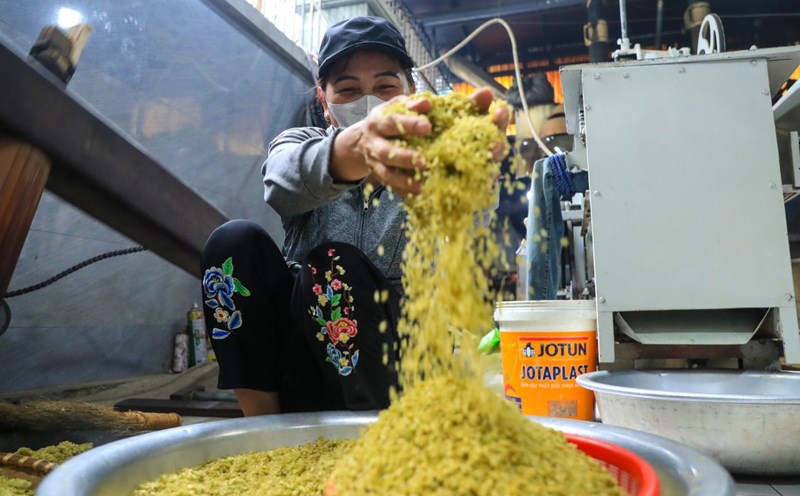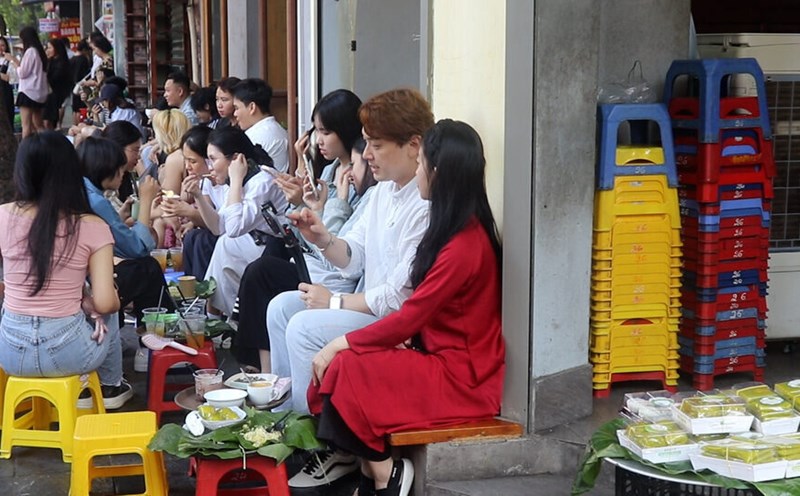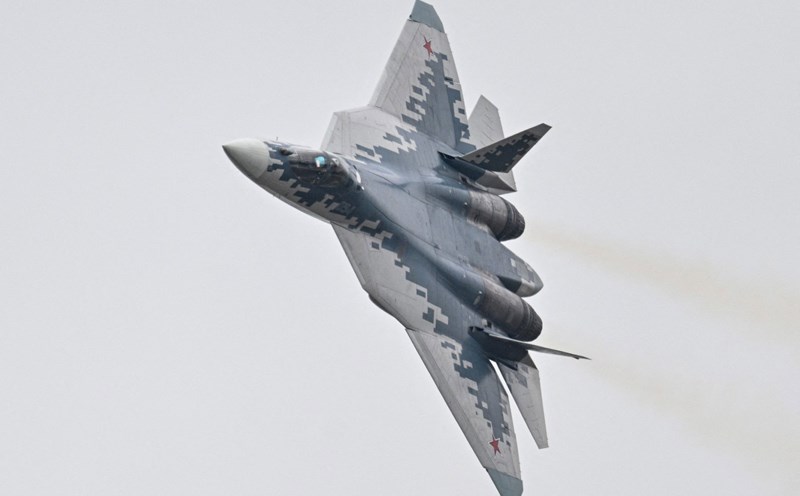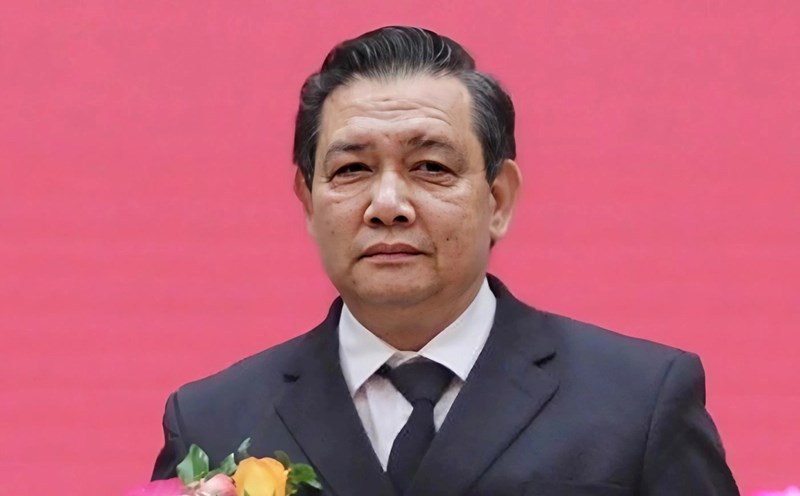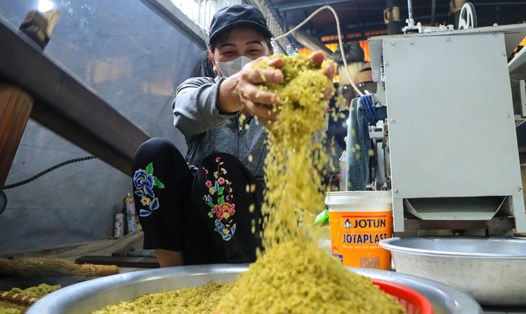In the poem, poet Trang Nam Anh with "I love Hanoi": "My city is a green city/Grand as a colorful painting...", "People with relatives in love early in the evening/ People everywhere "goure to death"...
Poet Bui Quang Ba with "My wonderful land", "The lotus flowers at the end of the summer" and then "Ngo len Thach That" with familiar and urgent places: "There are still in me the villages of my hometown/Binh Phu, Ha Bang, Kim Quan, Phung Xa/ Huong Ngai, Phu Kim, Yen Binh, Tan Xa/ I have forgotten, now I have returned"...
Poet Tran Duc Cuong - a veteran, has: "Chat linh", "Nho ve bo", "Van trang cho em" with impressive sentences: "Boi hoi giay lai gap lai/ Loi nhac van say/ Quan quan bac mau xanh xanh/ Ven nguyen quan van day".
As for Nguyen Quoc Dung with "Cuc Hoa Mi", "La Dinh" and "Dau Khuc Bat Gian": "Thien Thuong Chau Trong Luoc/ As for hearing a life full of love/ Tho! Walking around unusually".
Chu Thu Hang with "When West Lake is in harmony": "On days when West Lake is in harmony/ There are days when West Lake is in harmony/ The sunset falls, the young moon looks at the water/ Take a step on the shore, step on the familiar steps/ There are days when West Lake is like you".
Poet Chu Thu Hang is associated with the capital through "Hanoi, the season of trees changing leaves", "Ru ngua Hoang Thanh" related to yesterday and today, there are sentences that move people's hearts: "From all the yellow leaves, crocodiles turn green/Faring the voice of regretful dreaminess of the past/ You - the shadow - mixed into the city/ Maybe we can't meet each other/ But, I believe you will return, I won't forget/ Because to you, you are Hanoi...".
Nguyen Thi Thanh Lam is: "Bringing a collection of poems to sow in the season of love/ Will ease the pain of dark lives/ Sewing a collection of poems from thousands of years ago when our ancestors went to open the garden/ Seeing Nguyen Sieu with a pen that still lives in Ta Thanh Thien"... ("Siewing a green collection of poems") ("Siewing a book of poems from thousands of years ago")
Poet Vi Thuy Linh, born in Hoan Kiem (Hanoi) with "Dau tinh", "Musica mua dong" through the image of Anh and Em to honor the love of the pair, love for Ai Thanh, with the innovations of the Capital: "Hanoi is most beautiful when it is cold/ Hanoi is most affectionate when with Anh/ Anh will contribute to creating more bridges for the Capital, the country/ Anh has stretched out for Vinh Tuy Bridge, Dong Tru, Phu Dong Dong... across the Red River, Duong River/ This afternoon, I and you will see the most outstanding little bridge/ The Red Hoc on the Green Hoan Kiem Lake/ A precious, poetic green area/ To the pair of birds on the Pearl Island/ Thuc Nuoc/ colorful water/ Bridge of your hand in your city...".
"Long Bien Bridge", "Hanoi in Spring", the Imperial Citadel" are poems written by Chung Tien Luc about the Capital from the Imperial Citadel: "Fenghoa imprint on the steps/The family preserves the history of the human bloodline/ The hands of the talented kings on the dragon motifs of the Ly Dynasty/ The brick and bran of the chrysanthemum, the tiles of the Tran Dynasty's nose..." to Long Bien Bridge "With the Red River, the Tri ky tri am/ A dragon figure flies proudly/ Hanoi, the city by the river".
Beans of Hoai Thanh open their hearts with passionate, passionate words through "Vi di anh, "Anh di dau" and "Chuyen tinh cua anh" such as"... Dairy flower season at night falls on hair/ Deep eyes are filled with white mist/ Thank you by us.../ Like the mist on the early flower branches/ Golden spark of the river canola flower season...".
"There is an Autumn", "Child Night of the Sea", "Hoan Kiem" are a collection of poems written by Khuc Hong Thien about Hanoi, with a view of the ancient style.
Pham Thi Hong Thu with "Thang Long - Hanoi I Love" has proud quotes: "Thang Long in the past - Hanoi in today's future/ Traces of sediment deeply embroidered in the breath/ A reward of boundless achievements/ A heroic city rolling with green lines/ The spirit of a thousand years gathering together to crystallize/ mai mai mai mai mai, dragon flying with aspiration...".
Poet Lieu Chi Trung was excited about Xu Doai: "Why haven't you returned to your hometown yet?" "The legend of Son Tinh, Da Chong, Dong Luan/ Returning to the Song Mon Quan Hoang cheering the battle/ A hamlet of two kings, a green village of a strip"... "Canh Phong Tay Phuong - La Han lowland/ Chua Do, Tram pagoda - ancient linh An/ Xanh mat Suoi Hai, nui Thay dac"... "The word "The non nuoc" is still here/ Muoi nuoc nuoc ngung thua, Xu Doai is still waiting".
Poet Le Thanh Tung described "The Beauty of Trang An": "Early lotus buds/ Stretching to spread incense/ The First Lady of Hanoi/ The face of the flower is shaped like a pair of hooves/ The morning smile is radiant/ The hands are white and I am so beautiful...".
"Autumn Hanoi" is the heart of poet Phung Gia Vien: "Autumn Hanoi is rainy at night/ Where far I have not returned to hug it completely/ Bringing the beautiful sunshine/ To fall away the remembrance of the first young moon of the season/ Remember the embryolated Hanoi rain/ The windy worm coffee shop behind West Lake/ The cold lotus canary...".
Writer Dang Viet Thuy summarizes the names of West Lake over a thousand years of history. "Tay Ho - a place with many beautiful and ancient pagodas", is a spiritual gathering place with nearly two dozen pagodas. In addition, there are traditional craft villages associated with "other cultural heritages and scenic spots along the poetic West Lake, associated with the formation and development of the ancient Thang Long Citadel and the modern capital Hanoi. Those are invaluable heritages. Each heritage is a potential crystallization in it of multi-layered cultural values of many ages. That is the pride of every citizen of the capital as well as the people of Vietnam".
"Autumn in Hanoi" has short stories: "Moon Song" by writer Nguyen Thu Hang; "Life is Life" and "Imprints of the Vietnamese Bamboo" by writer Nguyen Van Hoan; "Customer of the Village" by writer Lieu Chi Trung.
With different story building methods, identities, and relationships of characters and rural areas, these short stories all attract readers. Thereby, learning more about Hanoi in the past and present, especially in rural areas, including Xu Doai...


